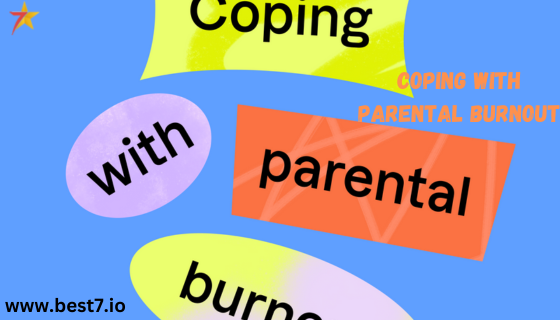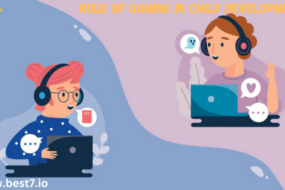
Parental burnout is an epidemic in today’s fast-paced society. A combination of physical, emotional, and mental exhaustion due to the demands of parenting, burnout is thought to afflict around 40% of parents. It could lead to depression, decreased social activity, and reduced quality of life. It is important for maintaining essential family health and reasonable functioning and critical to providing children with the support that they may need.
Parental Burnout Explained
Parental burnout has been defined by feeling exhausted, annoyed, and distant from one’s kids. A manifestation of the over-giving framework that is imposed upon all parents when they attempt to raise children is a direct result of having hit the ground running and never stopping since the moment they became parents with little replenishment or support in self-care. And research published in the Journal of Marriage and Family found that parents who suffer burnout are more likely to feel they do not live up to expectations — sentiments that can hurt relationships with kids and partners.
Recognizing the Signs of Parental Burnout
This is a good time to determine whether you are exhibiting signs that would classify you as experiencing parental burnout. The first step, to find a solution, is to accurately assess the signs of parent burnout and treat them accordingly. Common symptoms include:
- Chronic fatigue and tiredness
- Irritability, mood swings
- Feeling helpless and hopeless
- Difficulty concentrating, remembering, or making decisions
- Withdrawal from social interactions
Parental Burnout in Summary
Parental burnout can even go as far as affecting more than just the one parent. Research has shown that kids with burnout parents can end up acting out and be anxious; they may also develop problems in school. This is why tackling parental burnout is so important—not just for the parent but also because it can seriously impact the rest of the family’s health and happiness.
Practical Tips for Managing Parental Burnout
Parental burnout is a complex thing to manage. In doing so, parents can focus on some easy solutions to help reduce the load and stress while finding more balance in their parenting journey.
Prioritizing Self-Care
Taking care of yourself is most often not a priority for parents but can be crucial in keeping a level head. Seppala points to research showing lower stress and higher satisfaction among parents who take regular breaks. Simple practices such as:
- Spending time doing a hobby or interest
- Regular physical activity
- Ensuring adequate sleep
- Mindfulness or Meditation
These can make a big difference in terms of relaxation and general health.
Setting Realistic Standards
Parents, myself included, put too much pressure on themselves to do everything perfectly and win at this whole ‘parenting’ job. First, and I think most importantly: No one is a perfect parent. Studies carried out by the American Psychological Association recommend that we set achievable objectives to lessen our many senses of deficiencies and stress. Learning to be fine with not having it all figured out takes off a load.
Seeking Support
Creating a Support System in Place To Fight Parental Burnout: When it comes to parents, there should be no delay in contacting your friends and family or even taking the help of professional counselors. In fact, the National Institutes of Health claims social support can lower stress and enhance emotional well-being. Parenting groups or forums can also offer a sense of community and validation.
Time Management Techniques
Good time management can help parents better manage their busy schedules and feelings of burnout. Techniques such as:
- Creating daily or weekly schedules
- Task prioritization by urgency
- Splitting up chores between partners or older children
This helps to create a process that will ease your daily living and give you more time for self-care as well.
Establishing Boundaries
Saying no is 100% necessary to help you find the balance. This can easily cause overwhelm for even those without a family, much less for other parents feeling the same amount of pressure. The ability to establish healthy boundaries surrounding commitments—whether leisure social activities or additional responsibilities—gives parents time for self-care with their children. Parenting is hard, and trying to meet it head-on can help deal with burnout.
Effective Parenting Practices to Reduce Burnout
Parents can follow the strategies listed below to reduce barriers and minimize burnout.
Great Parenting Practices
Positive parenting helps nurture and develop positive relationships, as well as healthy emotional health. In India, it can be found within the corridors of an institution where children may be fighting for basic facilities and rights.
Big learning – do not ignore the voice of children wherever there are group living structures; they need special consideration.
Active listening to concerns, reinforcing positive behavior, and keeping communication lines open all lead to a positive, lower-stress home environment for children and their parents in two-person (or more) homes.
Teaching Kids to Be Independent
Providing independence to children can also remove some of the pressures from parents. Teaching children to own and be responsible for tasks like cleaning their rooms or homework is a great way of instilling self-reliance. A study from the University of Illinois revealed that children who are pushed to be independent usually have a greater sense of self-worth and are better at solving problems.
Balancing Screen Time
This is important for the parent but also beneficial for the child in learning about controlling screen time. Overuse of screens has been connected with feeling more anxious and isolated. By setting boundaries with screen time, your kids learn to find their own fun in family activities and conversations. The American Academy of Pediatrics suggests families set limits on media use consistent with the creation of a healthy family media lifestyle.
Including Family Activities
Doing family activities together will help keep the family unit intact and functioning smoothly. According to a study, families who share experiences are happier and emotionally healthier. Group game nights, going on fun outdoor excursions, and sitting down for home-cooked formal dinners together all help strengthen the family bond.
Supporting Parents’ Mental Health
This is critical for parents who struggle with a bit of burnout from time to time. The ideas below aim to help parents manage their own emotions.
Practicing Mindfulness and Relaxation Techniques
Practices like mindfulness, meditation, or yoga can have huge effects on stress levels. According to Psychological Science, a study was released that outlined some of the effects of mindfulness mentioned above. Incorporating mindfulness skills in your daily life can create more peace and balance.
Seeking Professional Help
Regardless of whether parents are feeling chronically burned out or are more seriously affected with mental health issues that seem unmanageable, help is absolutely necessary. Counseling or therapy can provide support and strategies to manage the stress. There is some evidence from the American Psychological Association to suggest that therapy tends to decrease our overall stress levels and improve mental health outcomes.
Using Online Services to Edit Your Content
Many online resources provide information and tips for parents suffering from burnout. Groups like the National Alliance on Mental Illness (NAMI) also have informational resources, hotlines, and support groups for parents. This allows parents to take good care of their minds.
Tips to Prevent Burnout from Work
Incorporating small tips into everyday family life can help parents feel refreshed and possibly decrease overall feelings of burnout.
Scheduling a “Me Day” Occasionally
There is no better way to show yourself some love than dedicating some “me time.” Each parent should pick some things to do each week that they love and give them joy and relaxation. Having this dedicated time can provide parents with more energy to deal with parenting challenges.
Embracing Imperfection
Understanding that parenting cannot be perfect every time takes the pressure off of us. Accepting the fact that you are not perfect allows parents to live in the moment and celebrate all those small wins along their parenting journey. Studies have shown that parents who demonstrate self-compassion experience less stress and higher satisfaction overall.
Bonding with Other Parents
Talking to other parents about their experiences and difficulties is important for not feeling so isolated. These connections can be helped along by local parenting groups or online forums to build a sense of community.
The Role of Balance in Parenting
Balance in parenting affects the well-being of the entire family. When you balance self-care and meet parenting demands, it enhances coping mechanisms and helps develop a more social and enjoyable family life. Here are some strategies for parents to balance their lives.
Establishing a Routine
Daily routines create a stable and predictable environment for the children and their parents as well. This can prevent anxiousness and increase positive cooperation. Parents can set morning and evening routines that incorporate self-care and relaxation into their days.
Involving Children in Household Responsibilities
Children who are made to do household responsibilities grow older with a better spirit of teamwork, and there is less stress for the parents. Giving children chores appropriate to their age helps them contribute to the family and learn important life lessons.
Staying Flexible
Parenting requires flexibility. Life can be unpredictable, and with adaptability, parents can switch gears quickly without becoming overwhelmed. In unexpected circumstances, maintaining a positive mindset and focusing on solutions is key.
Building Resilience through Strategies
Utilizing strategies to manage parental burnout and tapping into support will help empower parents to become the best version of themselves. By working together and focusing on self-care, parents can build resilience in their families and maintain mental well-being.












